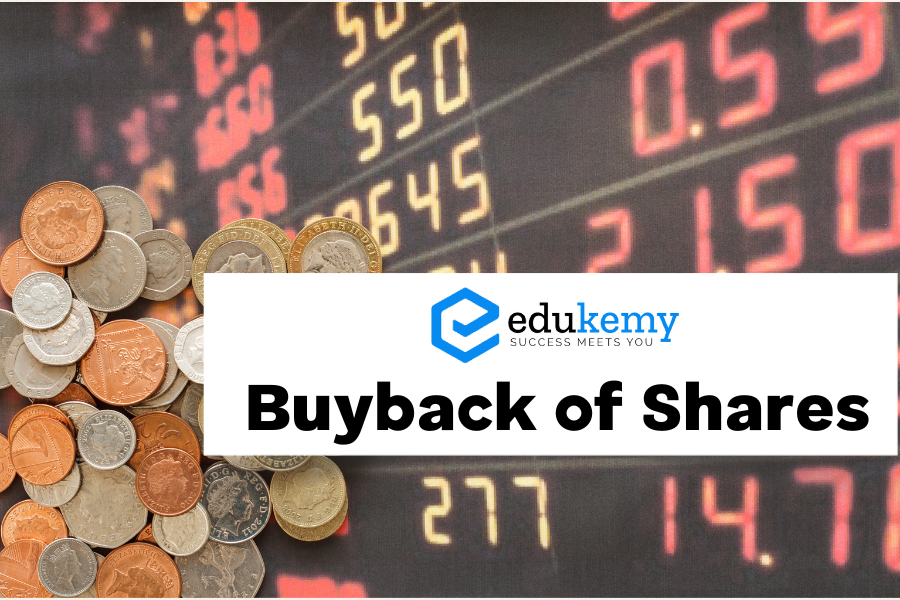
Buyback of shares refers to the process wherein a company repurchases its own outstanding shares from existing shareholders. This is typically done at a price that is higher than the current market price. The bought-back shares are either retired or kept in the company’s treasury, reducing the total number of shares in the open market.
Contents
Reasons for Buyback:
- Boosting Share Price:
- By reducing the number of outstanding shares, a buyback can increase the earnings per share (EPS) and, consequently, the valuation metrics, potentially boosting the share price.
- Optimism about the Future:
- A company’s decision to buy back its shares is often seen as a positive sign by investors. It signals that the management believes the stock is undervalued and has confidence in the company’s future prospects.
- Utilizing Excess Cash:
- Companies with surplus cash may choose to use it for buybacks when they don’t see attractive investment opportunities. This allows them to return value to shareholders.
Process:
- Cancellation of Shares:
- Shares bought back are typically canceled or kept in the company’s treasury. This leads to a reduction in the total equity and an increase in the ownership percentage for remaining shareholders.
- Source of Funds:
- Companies can use their reserves to fund the buyback. However, they are generally not allowed to borrow for the purpose of share buybacks.
- Government Encouragement:
- In some cases, governments may encourage cash-surplus public sector undertakings (PSUs) to undertake share buybacks as a part of their disinvestment strategy.
FAQs
A: A buyback of shares, also known as share repurchase, is a corporate action in which a company purchases its own outstanding shares from the market. This reduces the number of shares outstanding, effectively consolidating ownership and increasing the proportional ownership stake of shareholders who retain their shares.
A: Companies typically engage in share buybacks for various reasons, including returning excess cash to shareholders, signaling confidence in the company’s financial health, boosting earnings per share (EPS) by reducing the number of shares outstanding, and defending against hostile takeovers.
A: Share buybacks are typically financed using a combination of cash reserves, debt, and cash generated from operations. Companies may use cash on hand, issue debt securities such as bonds, or even use stockpiled profits to fund share repurchases.
A: Share buybacks can have several impacts on shareholders. They may lead to an increase in the stock price due to reduced supply of shares in the market, potentially resulting in capital gains for existing shareholders. Additionally, buybacks can enhance shareholder value by increasing earnings per share and return on equity metrics.
A: While share buybacks can be beneficial, they also carry risks. Companies may overleverage themselves by using debt to finance buybacks, which can strain their financial health. Additionally, if buybacks are conducted at inflated stock prices, they may not provide long-term value to shareholders. Moreover, buybacks may divert funds that could otherwise be invested in research and development, capital expenditures, or other growth initiatives.
In case you still have your doubts, contact us on 9811333901.
For UPSC Prelims Resources, Click here
For Daily Updates and Study Material:
Join our Telegram Channel – Edukemy for IAS
- 1. Learn through Videos – here
- 2. Be Exam Ready by Practicing Daily MCQs – here
- 3. Daily Newsletter – Get all your Current Affairs Covered – here
- 4. Mains Answer Writing Practice – here

